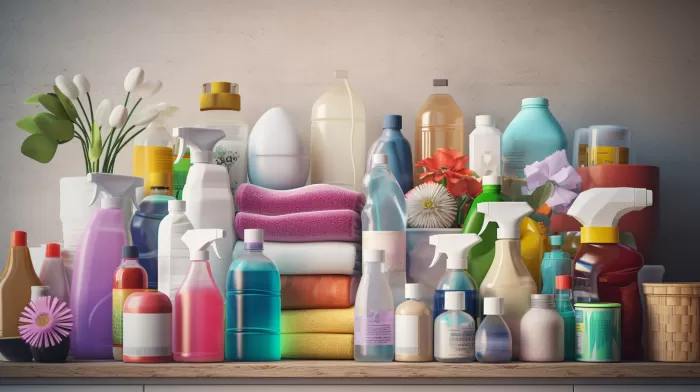You may not realize it, but a common chemical found in many household items could be wreaking havoc on your hormones, increasing your risk of diabetes, and causing you to gain weight. Research has shown that a group of chemicals called phthalates, which are used in plastic products and cosmetics, can have damaging effects on our health. In this article, we’ll explore the dangers of phthalate exposure and offer some tips for reducing your risk.
The Health Risks of Phthalates
Phthalates are used as plasticizers in polyvinyl chloride (PVC) plastic products to make them more durable and flexible. They’re also used in household products with synthetic fragrances, such as cosmetics, lotions, and shampoos, to help disperse scents. Some phthalates, like dibutyl phthalate (DBP) and diethyl phthalate (DEP), are even included as inactive ingredients in medications and dietary supplements to slow absorption and create a “time release” effect.
A significant body of research has linked phthalate exposure to a reduction of testosterone levels in men, as well as an increase in belly fat, insulin resistance, and risk of diabetes. Similar effects have been found in women, with those having the highest levels of certain phthalates in their urine at double the risk of diabetes compared to those with the lowest levels. Furthermore, phthalates have been shown to interfere with the vital functions of the thyroid.
Reducing Your Exposure to Phthalates
While it’s impossible to avoid all phthalate exposure, you can take steps to minimize the chemicals in your personal environment. Here are some tips for reducing your exposure:
- Stay away from medications and supplements that list DBP and DEP as ingredients. These ingredients may also be found in perfumes, nail polish, lotions, hair treatments, shampoo, deodorants, and cologne.
-
Be cautious of benzylbutyl phthalate (BzBp), which could be an ingredient in cosmetics, flooring, and other plastic products.
-
Avoid insect repellents that list dimethyl phthalate (DMP) as an ingredient.
-
Opt for unscented, hypoallergenic cosmetics and personal-care products. Be aware that any product listing “fragrance” or “parfum” on its packaging may contain phthalates.
-
Choose a cloth shower curtain made of cotton or another washable fabric instead of a plastic one.
-
Store refrigerated food in glass containers rather than plastic.
-
Do not use plastic food containers in the microwave, as high temperatures may cause chemicals from the plastic to migrate into your food.
-
Use air fresheners made with pure essential oils, rather than synthetic fragrances.
-
Select unscented laundry soap.
-
Avoid products containing di(2-ethylhexyl)phthalate (DEHP), bis(2-ethylhexyl) phthalate, dioctyl phthalate (DOP), and dimethyl phthalate (DMP).
Conclusion
Phthalates are pervasive in our modern world and have been linked to various health problems, including hormone disruption and asthma. It’s crucial to be aware of these dangers and take steps to minimize exposure, as doing so can help protect your health and well-being. By following the tips outlined above, you can reduce your risk and increase your peace of mind.



![8 Simple Rules to Refresh Your Body with a Healthy Cleanse [See Pictures]](https://naturalhealthreserve.com/wp-content/uploads/2024/01/8-rules-healthy-cleanse-slideshow-300x168.webp)